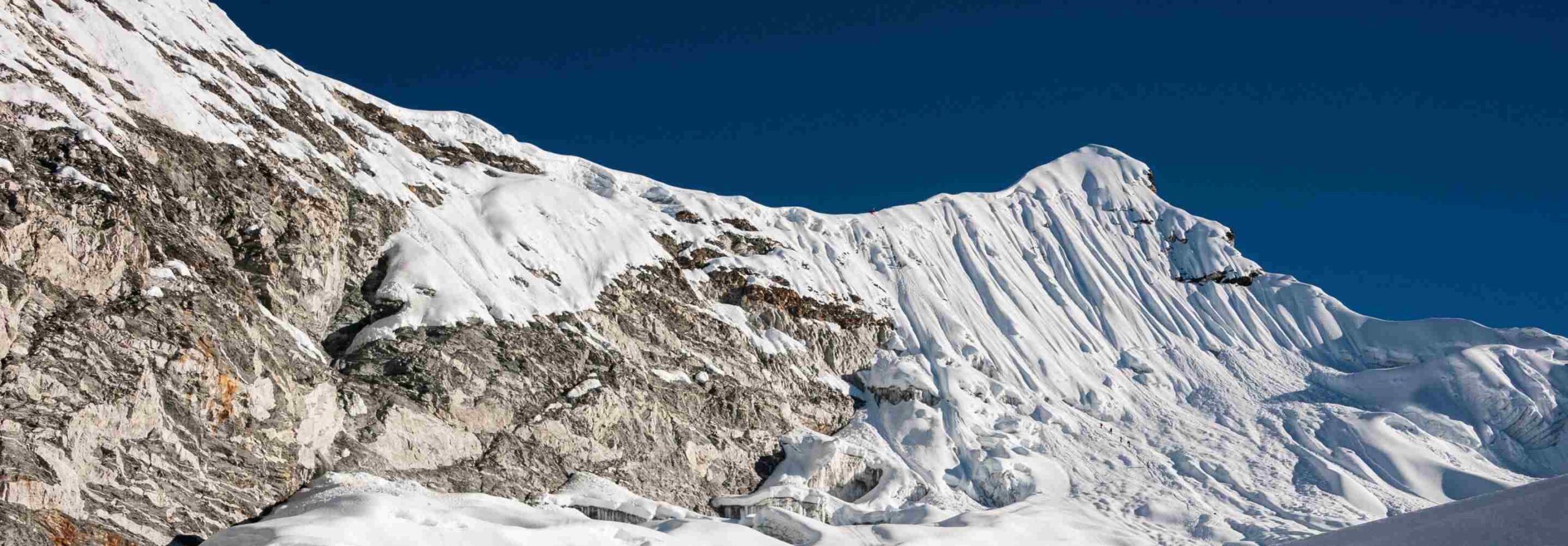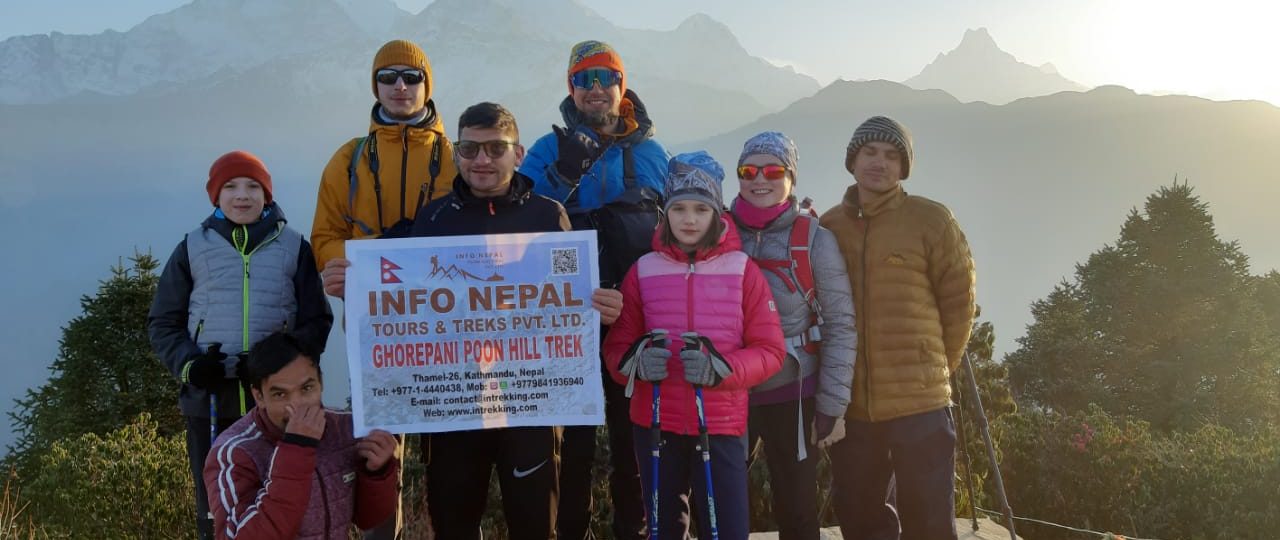
 Written By: Rajesh Neupane
Written By: Rajesh Neupane
How Hard is Island Peak Climbing?
Enquiry Form
Are you an enthusiastic trekker dreaming of taking your adventures to new heights – literally? Island Peak (6,189m/20,305ft) in Nepal’s legendary Everest region could be the perfect challenge for you. This stunning snow-capped summit tantalizes climbers with its accessibility for novices yet a formidable test of skill and endurance.
But just how hard is climbing mighty Island Peak? The short answer – it’s no walk in the park, but with proper preparation and guided experience, the summit is attainable for determined trekkers. Here’s an in-depth look at what it really takes to conquer this iconic Himalayan giant.
The Journey to Base Camp
Before you can even think about the climb itself, you’ll need to complete a long, tough trek just to reach Island Peak Base Camp. This arduous journey typically takes around 10-12 days, traversing:
- Legendary mountain villages like Namche Bazaar and Dingboche
- Pristine high-altitude landscapes like the Khumbu Valley
- Glacial moraines and icy streams
- Steep mountain passes like Kongma La (5,535m)
Every step of the way, you’ll be battling the effects of high altitude as the air thins. Proper acclimatization with rest days is crucial to avoid acute mountain sickness that could halt your climb before it even starts.
The approach through the Khumbu is an adventure in itself. You’ll get your first glimpses of Island Peak while trekking through Dingboche. The excitement builds as the mountain’s dramatic silhouette dominates the skyline ahead.
Navigating glacial trails flanked by towering peaks like Lhotse and Nuptse, you’ll pass thunder-ice waterfalls before making your final push to base camp on the Imja Glacier. This walk alone is a true test of endurance.
The Climb Itself
Once at base camp around 5,000 meters, the real work begins. Most climbs set up an additional high camp even higher at around 5,500 meters to better prepare the body and make summit day more attainable.
From high camp, you’ll face:
- 8-12 hour climb to the summit, crossing crevasse fields
- Steep sections requiring ropes, ladders, and ice axes
- Exposed ridge walks with dramatic dropoffs
- Extreme cold temperatures as low as -20°C/-4°F
The route involves navigating the Imja Glacier and crossing treacherous ladders over massive crevasses. As you gain elevation, you’ll be front and center staring down the imposing south face of Lhotse and Everest’s iconic peak.
Reaching the summit ridge provides a rush of emotions – exhilaration to be so high in the Himalayan realm combined with extreme mental focus needed for the exposed traverse to the top. One misstep and you’ll be punished on this unforgiving mountain.
Even the descent is no easy feat after such exertion at high altitude. Climbers must carefully retrace the same precarious route back to high camp, with every step requiring full attention amid fatigue and altitude effects.
You’ll need excellent fitness, strong technical climbing skills, proper gear and ideal acclimatization to have a real shot at the summit. Many turn around due to the extreme conditions.
Preparation is Key
The single most important factor for a successful Island Peak climb is training and preparation. Proper physical and technical conditioning is crucial, as this is no trekking peak despite its accessibility.
Here are some essential preparation tips:
✔ Build cardiovascular endurance with frequent uphill hiking while carrying a weighted pack of 10-15 kgs
✔ Focus on strength training for legs and core to handle awkward climbing positions for hours
✔ Practice climbs to get extremely comfortable with ropes, crampons, ice axes, harnesses, etc.
✔ Go on acclimatization treks to high altitudes of 5,000+ meters if possible
✔ Invest in a proper layering system, insulation and climbing gear rated for extreme cold
✔ Master skills like roped travel, crevasse rescue, belaying and self-arrest techniques
✔ Build excellent physical and mental stamina through long training hikes
Many climbers opt for a guided experience to increase safety and chances of success. Experienced mountain guides provide crucial technical instruction, properly fitted gear, support crew like porters and cooks, and an ideal acclimatization schedule over 2-3 weeks.
Acclimatization is critical, as the summit push starts from around 5,500 meters already depriving your body of oxygen. Allowing your body to adjust gradually with rest days interspersed is vital for avoiding altitude sickness that can not only ruin your summit bid but put your life at risk.
Island Peak Climbing Facts:
- Summit: 6,189 meters / 20,305 feet
- Location: Khumbu region of Nepal in the Everest Himalaya
- First Summit: 1953 by Tenzing Norgay and Edmund Hillary’s crew as practice before Everest
- Typical Climb Duration: 16-20 days total from Lukla
- Best Climbing Seasons: April-May and September-October
- Permit Required: Yes, organized through registered trekking agency
- Recommended Experience: Prior high-altitude trekking and basic mountaineering skills
Final Say
So is climbing Island Peak hard? You better believe it is – but that’s what makes the rewarding views from the summit so sweetly satisfying for those who make it. The difficult journey across glaciers and up exposed ridges surrounded by Himalayan titans like Everest and Lhotse elevates it to a true mountaineering achievement.
With the right preparation, guidance, and respect for the mountain, this achievable first major Himalayan climb could be yours! For fit and determined trekkers, the memories of reaching the Island Peak summit will last a lifetime.
Think you have what it takes? Get ready for the adventure of a lifetime on the slopes of Island Peak. Just be sure to get proper training, invest in quality gear, and listen expert advice every step of the way. Climbing mountains of this scale is a beautiful yet unforgiving endeavor not to be underestimated.
For inquiries or to contact us regarding trekking adventures, please reach out to us at [email protected] or +977-9841936940 (WhatsApp).